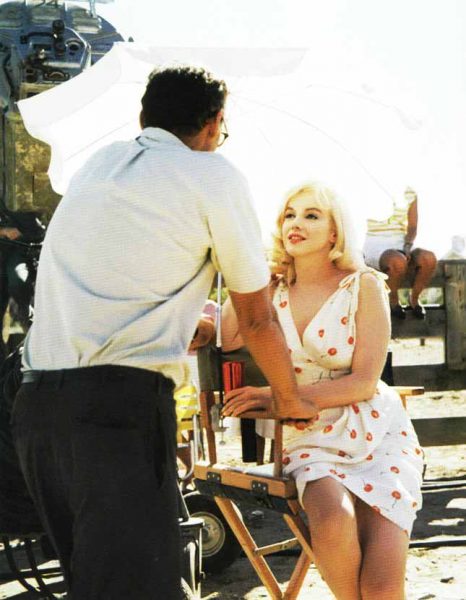
Writing for The Independent, Geoffrey McNab ponders why Arthur Miller’s plays (unlike those of his contemporary, Tennessee Williams) have translated so poorly to the screen. He concedes that The Misfits has stood the test of time – perhaps due to the calibre of its cast, and being written directly for the screen (albeit based on a short story.)
“‘It’s a very mysterious business. It’s very difficult to generalise about the movies. It has a mystical effect on you finally. I can see why people devote their whole lives to fiddling with this [medium],’ the playwright, then at the end of his career, told producer/director Gail Levin when interviewed for her documentary Making The Misfits (2001).
John Huston’s The Misfits (1961), about rodeo riders, ageing cowboys and divorcees adrift in Reno or chasing wild mustangs in the Nevada deserts and mountains, was a famously chequered production. It went over budget and over schedule. Miller had intended it as a valentine to Monroe but, during shooting, their marriage imploded. Her behaviour was erratic and her time-keeping infuriating. This, though, is a heartrending movie in which, against the odds, Gable, Monroe and Clift, alongside a youthful Eli Wallach, give their rawest and most tender performances. It combines an old Hollywood feel with the best of Method acting. It also has an obvious added poignance because Gable and Monroe never completed another film after it.
Ironically, Miller felt that Huston wasn’t making The Misfits cinematic enough. ‘What intrigued me somewhat about life in Nevada was that the people were so little and that the landscape was so enormous. They were practically little dots … they were like specks of dust,’ Miller told Gail Levin. He wanted Huston to give the film an epic quality. Instead, the director did close-up after close-up, concentrating on the inner emotions of his tormented protagonists. Nonetheless, the credits are very revealing. For once, Miller’s name appears as big as those of his stars. He originated the project, found the producer and hired Huston.
At the time of The Misfits’ release, audiences were flummoxed. It wasn’t a typical Monroe or Gable vehicle and nor was it a conventional western. Sixty years on, it stands as the purest and least compromised of any of the films in which Miller was involved.”